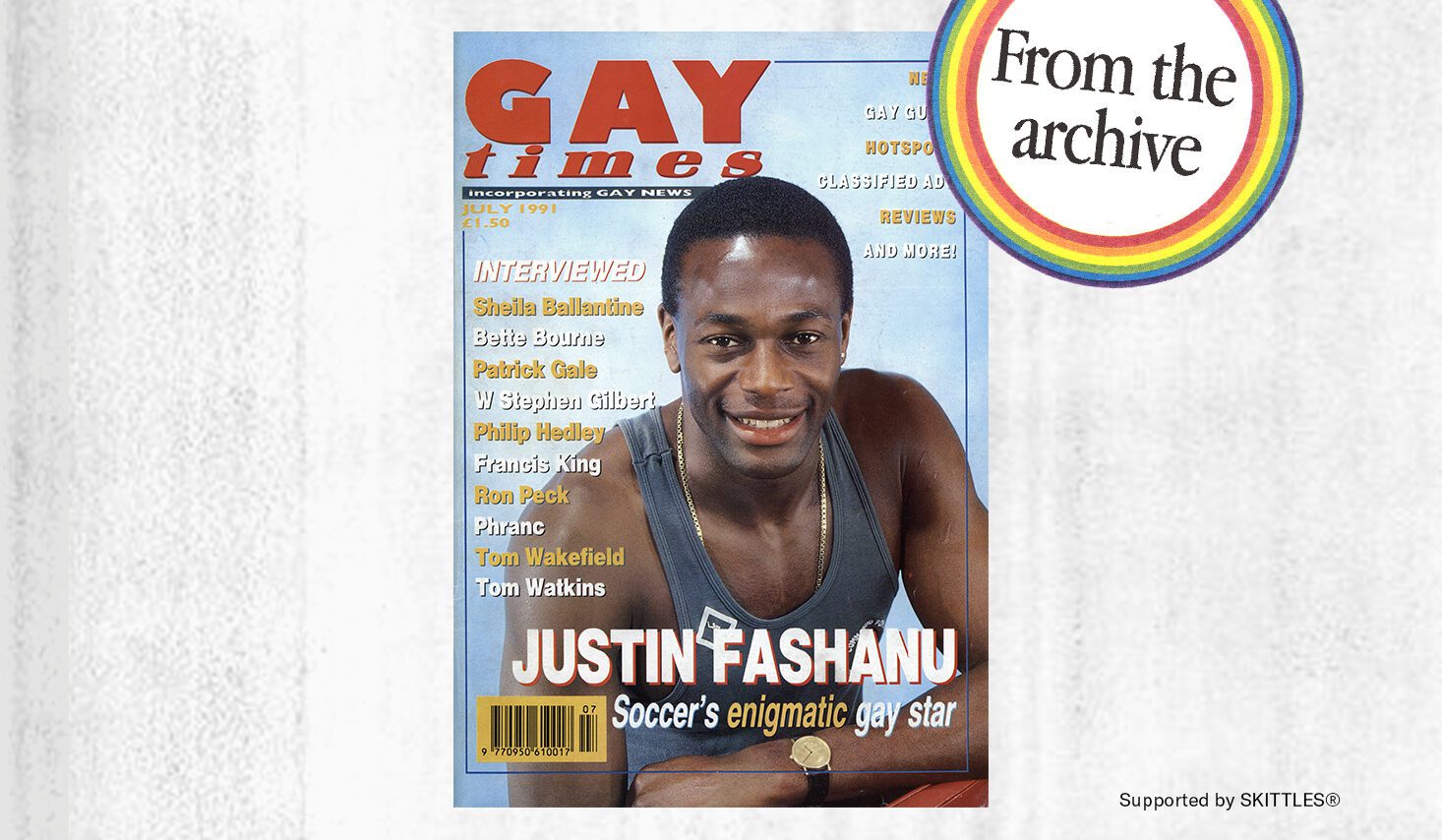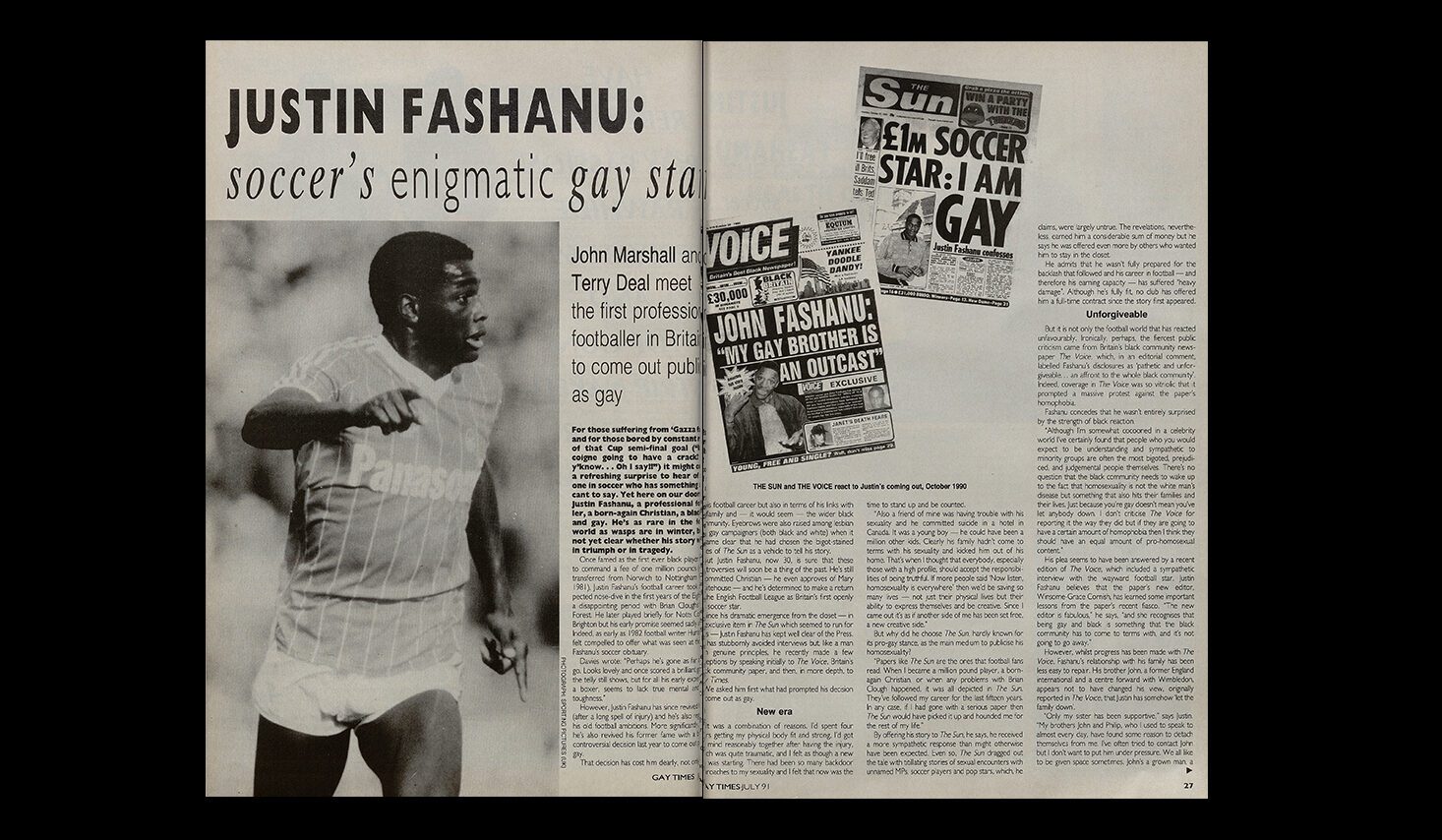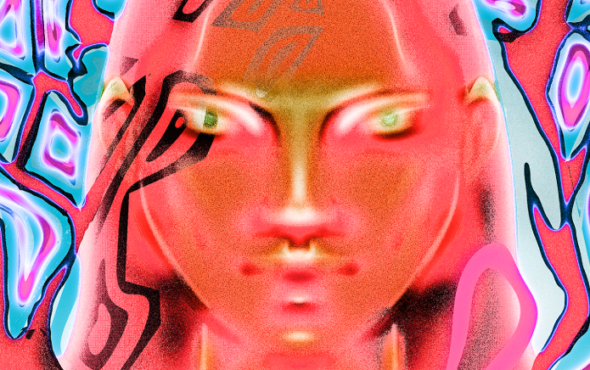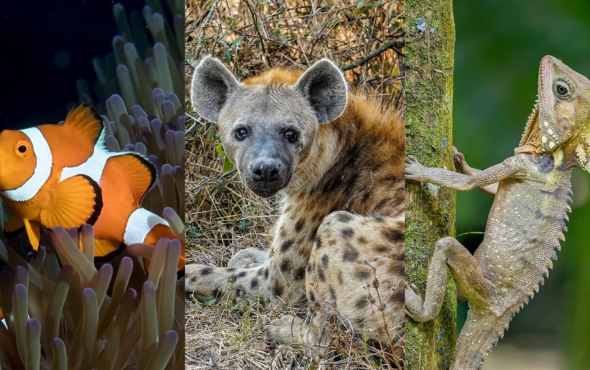
For those suffering from ‘Gazza fatigue’ and those bored by constant replays of that Cup semi-final goal (“is Gascoigne going to have a crack? He’s y’know..Oh I say!!”) it might come as a refreshing surprise to hear of someone in soccer who has something significant to say. Yet on our doorstep is Justin Fashanu, a professional footballer, a born-again Christian, a black man, and gay. He’s as rare in the football world as wasps are in winter, but it’s not clear yet whether his story will end in triumph or in tragedy.
Once famed as the first ever black player in Britain to command a fee of one million pounds (when he transferred from Norwich to Nottingham Forest in 1981) Justin Fashanu’s football career took an unexpected nose-dive in the first years of the eighties after a disappointing period with Brian Clough’s team at Forest. He later played briefly for Notts County and Brighton but his early promise seemed sadly unfulfilled. Indeed as early as 1982 football writer Hunter Davies felt compelled to offer what was seen at the time as Fashanu’s soccer obituary. Davies wrote: “Perhaps he’s gone as far as he will go. Looks lovely and once scored a brilliant goal which the telly still shows, but for all his early experiences as a boxer, seems to lack true mental and physical toughness.”
However, Justin Fashanu has since revived his fitness (after a long spell of injury) and he’s also regenerated his old football ambitions. More significantly perhaps he’s also revived his former fame with a brave and controversial decision last year to come out publicly as gay. That decision has cost him dearly, not only in terms of his football career, but also in terms of his links with his family and – it would seem – the wider black community. Eyebrows were also raised among lesbian and gay campaigners (both black and white) when it became clear that he had chosen the bigot-stained pages of The Sun as a vehicle to tell his story. But Justin Fashanu, now 30, is sure these controversies will soon become a thing of the past. He is still a committed Christian – He even approves of Mary Whitehouse – and he’s determined to make a return to the English Football League as Britain’s first openly gay soccer star.
Since his dramatic emergence from the closet – in an exclusive item for The Sun which seemed to run on for days – Justin Fashanu has kept well clear of the press. He has stubbornly avoided interviews but, like a man with genuine principles, he recently made a few exceptions by speaking to The Voice, Britain’s black community paper, and then, in more depth to GAY TIMES. We asked what had prompted his decision to come out as gay.
New era
“It was a combination of reasons. I’d spent four years getting my physical body fit and strong, I’d got my mind reasonably together after having the injury, which was quite traumatic, and I felt as though a new era was starting. There had been so many backdoor approaches to my sexuality and I felt that now was the time to stand up and be counted.
“Also, a have friend of mine was having trouble with his sexuality and he committed suicide in a hotel in Canada. It was a young boy – he could have been a million other kids. Clearly his family hadn’t come to terms with his sexuality and kicked him out of his home. That’s when I thought that everybody, especially those with a high profile, should accept the responsibilities of being truthful. If more people said ‘Now listen, homosexuality is everywhere’ then we’d be saving so many lives – not just their physical lives but their ability to express themselves and be creative. Since I came out it’s as if another side of me has been set free, a new creative side.”
But why did he choose The Sun, hardly known for its pro-gay stance, as the main medium to publicise his homosexuality? “Papers like The Sun are the ones that football fans read. When I became a million pound player, a born again Christian, or when any problems with Brian Clough happened, it was all depicted in The Sun. They’ve followed my career for the last fifteen years. In any case, if I had gone with a serious paper then The Sun would have picked it up and hounded me for the rest of my life.” By offering his story to The Sun, he says, he received a more sympathetic response than might have been expected. Even so, The Sun dragged out the tale with titillating stories of sexual encounters with unnamed MP’s, soccer players and pop stars, which, he claims, were largely untrue. The revelations, nevertheless, earned him a considerable sum of money but he says he was offered even more by others who wanted him to stay in the closet. He admits that he wasn’t fully prepared for the backlash that followed and his career in football – and therefore his earning capacity – has suffered “heavy damage”. Although he is fully fit, no club has offered him a full-time contract since the story first appeared.
Unforgivable
But it’s not only the football world that has reacted unfavourably. Ironically, perhaps, the fiercest criticism came from Britain’s black community newspaper The Voice, which in an editorial comment, labelled Fashanu’s disclosures as ‘pathetic and unforgivable… an affront to the whole black community’. Indeed coverage in The Voice was so vitriolic it prompted a massive protest against the paper’s homophobia.
Fashanu concedes that he wasn’t entirely surprised by the strength of the black reaction. “Although I’m somewhat cocooned in a celebrity world I’ve certainly found that people who you would expect to be sympathetic and understanding to minority groups are often the most bigoted, prejudiced, and judgemental people themselves. There’s no question that the black community needs to wake up to the fact that homosexuality is not the white man’s disease, but something that also hits their families and their lives. Just because you’re gay doesn’t mean you’ve let anybody down. I don’t criticise The Voice for reporting the way they did but if they’re going to have a certain amount of homophobia then I think they should have an equal amount of pro-homosexual content.”

His plea seems to have been answered by a recent edition of The Voice, which included a sympathetic interview with the wayward football star. Justin Fashanu believes the paper’s new editor, Winsome-Grace Cornish, has learned some important lessons from the paper’s recent fiasco. “The new editor is fabulous,” he says, “and she recognises being gay and black is something the black community has to come to terms with, and its not going to go away.”
However, whilst progress has been made with The Voice, Fashanu’s relationship with his family has been less easy to repair. His brother John, a former England international and a centre forward with Wimbledon appears not to have changed his view, originally reported in The Voice, that Justin had somehow ‘let the family down’.
“Only my sister has been supportive,” says Justin. “My brothers John and Philip, who I used to speak to almost every day, have found some reason to detach themselves from me. I’ve often tried to contact John but I don’t want to put him under pressure. We all like to be given space sometimes. John’s a grown man, a very successful man, like all my family they know their own minds and if you keep pushing people you can drive them further away. The key is love and understanding. Sometimes love can mean leaving people alone.”
Although his brothers were clearly shocked by his public revelations, rumours about his homosexuality have long been in circulation. He strongly denied these rumours in 1982 after a Sunday newspaper reported his appearance at a gay club in Nottingham. He doesn’t deny that he went to a club, but says he wasn’t gay at the time. Nevertheless the experience of visiting a gay club was clearly significant for the young football star. “I was living in a hotel with my girlfriend at the time,” he recalls. “In the lounge I saw four guys with a lot of style and charisma who were clearly enjoying themselves. They stood out from the more traditional guys with girls and interested me more than anyone else. One of these guys was Ross Smith, the owner of Part Two, who invited me to the club. The atmosphere was electrifying and sensually stimulating and I had a whale of a time. Everybody seemed to be enjoying themselves and not worrying what other people were doing like they tend to do in straight clubs. It was the atmosphere of people enjoying freedom.”
It was at this time that Justin first started to seriously consider the sexual side of his character. “As a born again Christian I was celibate but then I started thinking ‘Hey, now maybe I don’t want a wife, two kids and a car at home in the garage. I’d realised I could be attracted to men. I was living with a beautiful girl but I wanted to be more affectionate to men, not a sexual thing particularly, but I needed to hug my friends and I felt restrained from doing this very natural thing.”
Conflict
His Christian beliefs have obviously made it more difficult for him to come out publicly as gay, but he doesn’t see any conflict between those beliefs and his homosexuality. “The importance of Christianity as I see it, is how much we care and how much we love. I don’t think inherently that having anal or vaginal sex is right or wrong, what we need to be aware of are the thoughts behind what we are doing. What’s important for gay people in high profile positions like the Government is to come out and show there’s a bigger percentage of homosexuals than people realise. Not enough people are being honest so that everyone can see that homosexuality isn’t a sin, or if it is, then millions upon millions of people are going to hell. We must reassure people that homosexuality does not equal toilets, perversion, or little boys. We have to educate people.”
As these comments imply, Justin Fashanu is not a supporter of unbridled sexual freedom. “Young kids are a lot more clued-up and wise, growing up quicker, but that doesn’t mean to say, for instance, that sexual consent should go down to nine or ten. Censorship does need to be relaxed but we still need to have it. I don’t necessarily believe in everything Mary Whitehouse says but we need people like her to keep us from going too far down the slippery path towards losing all moral standards.”
Dilemmas
Fashanu recognises that wealth and celebrity pose certain dilemmas for those committed to Christian beliefs, but it’s a problem he easily resolves. “I’ve made a lot of money in my career and I understand the shallowness of it. But money equals power and I want to use that power. I want to use it in a way that is helpful to other people. Keeping it to yourself is the most unfulfilling thing you can possibly imagine. The gay man has vast wealth in this country and we need that person who’s been blessed with materialism to share it in a constructive way. We can help ourselves a lot more than we do. I don’t want to see that boy on the streets selling himself, I want to help him financially in some way. I see many worthy gay organisations struggling with no money to support them. At the moment I’m only able to talk and suggest things but when I’m more secure financially I hope to turn these words into action.”
He states with confidence that the next few years could see a significant rise in his earnings because he’s sure that he’ll be playing next season in the English Football League. And he’s quite prepared to deal with the excessive media attention and verbal abuse from fans. “Any taunts will sound hollow if I produce the goods,” he says. “I’m psychologically prepared for the challenge. It’s important to me that I get back and play to prove being gay is OK. There are many people who would love to come out, not just in sport, who will be looking to see what will happen to me. If I can get back out on the field and do what I do best, score goals, and be accepted, then the way will be open to other people. If I do well, the press could turn and support the underdog. But if Justin Fashanu is buried and gone and the blockade continues then I think it will put back – by a long way – the chances of other people in sport coming out. It’s as important as that.”
For LGBT History Month 2022, we are publishing four historic GAY TIMES Magazine features from our archives and making it available on our digital channels for the first time ever.
It follows the groundbreaking campaign from SKITTLES®, GAY TIMES, Switchboard and Queer Britain last summer – titled Recolour The Rainbow – which breathed new life into archive imagery from Pride’s past to acknowledge and celebrate those who have come before us in the fight for LGBTQ+ liberation.


